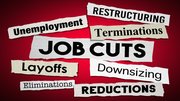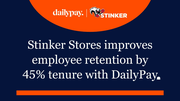News
Retailers upgrading POS, focusing on its marketing capabilities
July 8, 2009
Aberdeen Group reports that 73 percent of retailers rate themselves as sub-par when it comes to keeping their POS systems up to date technologically. And two-thirds of them are positioning the device as a marketing tool, in order to justify the cost of upgrades.
We've explored the underutilized features of the POS before, and the facts remain incontrovertible: it's a wickedly sophisticated business tool that is still being used chiefly as a cash register in many stores. As tough times continue to put the squeeze on retailers, they will be forced to squeeze every ounce of value out of their IT — and fortunately for them, there's a lot of value lurking in the POS.
 | BOSTON, MA -- 07/08/09 -- Recent research reveals that the recession is turning focus back towards store POS efficiencies and total cost of ownership. Seventy-three percent (73%) of retailers rate themselves below, or at best sub-par, on their current point-of-service or point-of-sale (POS) capabilities, according to the Aberdeen Group report, "POS to Profits: Reviving Best-in-Class Sales and Service in Retail Stores." The research from Aberdeen Group, a Harte-Hanks Company (NYSE: HHS) details the business benefits derived from upgraded POS performance and cost optimization. According to Aberdeen data, as a means to augment POS performance with an eye on costs, industry's top performing retailers are more than twice as likely as all others to consider modular improvements, deployment, and ongoing service costs as a key criteria for POS upgrades. Given the expansive list of options to upgrade POS operations, such as data management, help desk support, feedback management, rapid response, and ongoing software management, it seems logical that top performing retailers are keen to understand how these capability upgrades will benefit the organization, both currently or in three, five, or ten years. "Top performing retailers are establishing highly specific implementations cost criteria plans, as well as short- and long-term benefit lifespan analysis when managing the technology supplier selection process," comments Sahir Anand, chief author and retail research director, Aberdeen. "Besides rapid configuration and integration with other systems, one of the ways to justify continued spend on POS is to convert it into a marketing tool that increases customer traffic into stores." Aberdeen has found that 66% of top performing retailers are focusing on the POS as a marketing tool to justify the TCO behind the next phase of technology improvements. To achieve this objective, Aberdeen has found that these retailers are negotiating two major challenges. First, these companies overcome the hurdle of developing an internal mandate and agreement amongst teams involving store operations, marketing, merchandising, and IT, so as to enable such improvements in a rapid manner. Second, any modular improvement at the POS must guarantee secure corresponding data management processes. Fortunately, the retail industry's top companies are cognizant of optimum POS data access, extracting business value and consumer insights from such data, and storage measures under payment card industry data security standards (PCI-DSS) and other consumer privacy guidelines. "These challenges notwithstanding, converting POS into an effective consumer marketing tool at an affordable cost that continues to provide a sustained level of customer focus is a dream come true for any C-level executive in retail," says Greg Belkin, co-author and research analyst, Aberdeen. |  |
 ChatGPT
ChatGPT Grok
Grok Perplexity
Perplexity Claude
Claude




